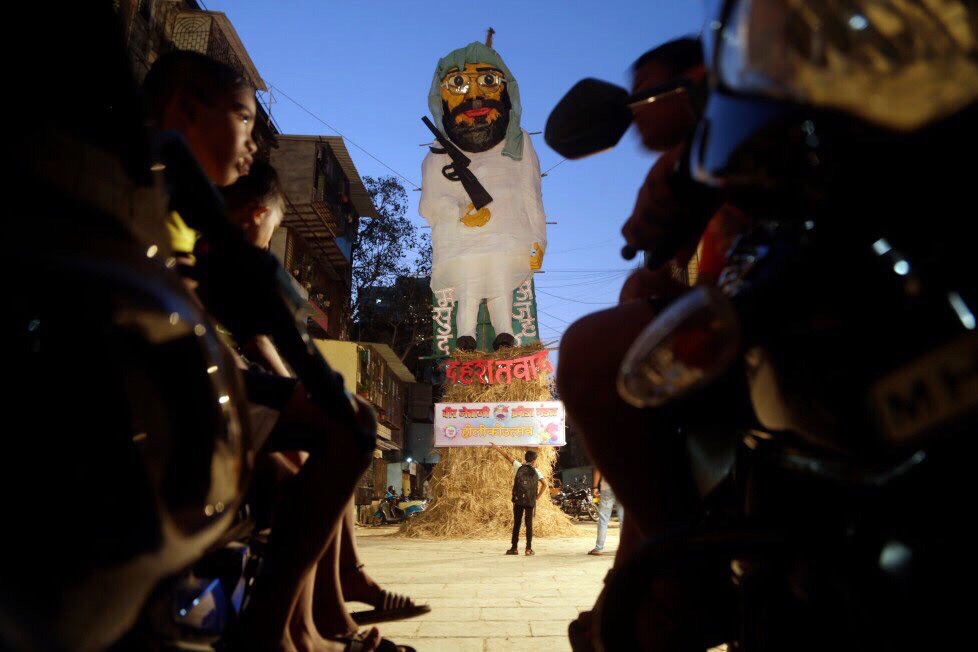 Nanda: The real threat to stability in South Asia is terrorism originating in Pakistan
Nanda: The real threat to stability in South Asia is terrorism originating in Pakistan• Ved Nanda
• March 29, 2019 at 12:01 pm
Tensions have now eased on the Indian subcontinent, but in mid-January after a suicide bomber in Pulwama, Kashmir, killed 40 Indian paramilitary police, India and Pakistan — two nuclear-armed neighbors — faced off.
Jaish-e-Mohammad (JeM), a Pakistan-based terrorist organization, claimed responsibility for the bombing. Twelve days later the Indian Air Force (IAF) struck a JeM camp at Balakot, deep inside Pakistan. That was followed by Pakistani jets crossing into Indian airspace and a dogfight ensuing between the two Air Forces, in which an Indian plane was shot down and its pilot captured. Pakistan returned him to India after a few days and further escalation was avoided by both sides.
But as a recent article by the Carnegie Endowment for International Peace has aptly stated, we are witnessing a “smoldering volcano.” These neighbors have fought four major wars since India was partitioned in 1947. The critical question now is, what has changed with Pulwama and Balakot?
The Balakot strike, which India called a “preemptive strike” to prevent another imminent JeM attack, marks a policy shift in India’s decades-long strategy of self-restraint — enduring proxy terror attacks, funded and actively supported by the Pakistani military and intelligence services. Pakistan’s nuclear weapons have deterred India from conventional retaliation for these government-backed terrorist strikes.
After coming to power in 2014, Prime Minister Modi of India suggested that he would no longer tolerate such proxy attacks. And in 2016, in response to an attack in Pathankot and Uri, Modi conducted a “surgical strike,” sending India’s armed forces across the border inside Pakistan.
This time, after Pulwama, the air strikes have sent a clear and resounding message to Pakistan — that India will not be intimidated by nuclear coercion: its response henceforth will be swift and proportionate and Pakistan must cease its proxy terror policy.
After Pulwama, India removed Pakistan from its “most favored nation” status, imposing 200 percent duties on all imports from Pakistan. This, however, is a symbolic gesture. A more serious action is blocking the water of three rivers flowing into Pakistan. Under the 1960 Indus Waters Treaties that govern the sharing of waters between India and Pakistan, India was entitled to make full use of these three rivers, but it was letting a percentage of their waters flow into Pakistan. “Blood and water cannot flow simultaneously,” announced Modi. Of course, the Balakot strike is of a different magnitude.
How relevant is international law, which prohibits the use of force in resolving international disputes? It is politics, not international law, that will resolve this conflict. But under international law rules, a country can use force in its self-defense to prevent an imminent attack. This was the U.S. justification for its invasion of Afghanistan, which the United Nations blessed, and it is the same justification that India has used for its military operations inside Pakistan.
Pakistan has been facing mounting international pressure, even from Islamic countries, to restrain terrorist groups operating from its territory, attacking India and Afghanistan. After the Pulwama attack, the White House urged Pakistan to punish those responsible for the attack.
While Pakistan has tried to convince the international community that it is taking adequate and appropriate measures against such groups, all these measures, such as after the 2008 Mumbai terrorist attack and the 2016 Uri attack, have been cosmetic. The terrorists, sanctioned by the government, have resurfaced soon after the announcement of such sanctions and the “banned” terrorist groups have always reincarnated under another name.
The real threat to stability in South Asia is terrorism originating in Pakistan. With the Balakot message and the continuing international pressure, perhaps Pakistan has learned that it is in its interest to control terrorist groups and stop the proxy attacks in India and Afghanistan. It indeed is in Pakistan’s interest to do so, because it also remains vulnerable to terrorism and has suffered immensely from such attacks.
Ved P. Nanda (vnanda@law.du.edu) is Distinguished University Professor and Director of the Ved Nanda Center for International and Comparative Law, University of Denver Sturm College of Law. His column appears the last Sunday of each month.
No comments:
Post a Comment